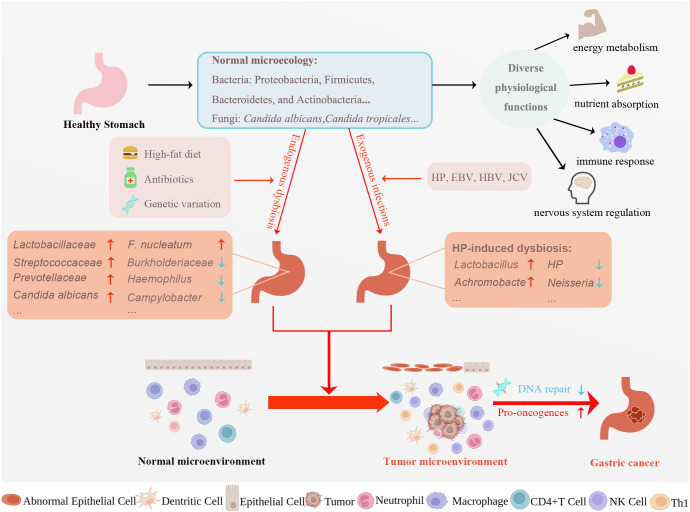Figure 1.
Factors affecting gastric microecological dysbiosis and potential mechanisms underlying microecological dysbiosis causing gastric carcinogenesis. A multitude of microorganisms resides in the stomach, creating normal gastric microecology. Normal microecology plays a vital role in various physiological activities such as energy metabolism, nutrient absorption, immune response, and nervous system regulation. High-fat diet, antibiotics, genetic variation, and exogenous infections can all dysregulate normal gastric microecology, turning the normal microenvironment into the tumor microenvironment and eventually leading to gastric cancer development. Exploring the mechanism of gastric cancer progression from the perspective of gastric microecology is essential for early diagnosis, treatment, and prognosis of gastric cancer. HP, Helicobacter pylori; EBV, Epstein-Barr virus; HBV, Hepatitis B virus; JCV, John Cunningham virus, F. nucleatum, Fusobacterium nucleatum; Th, helper T cell; CTL, Cytotoxic T lymphocyte. Created with BioRender.com. (accessed on 17 May 2023).

